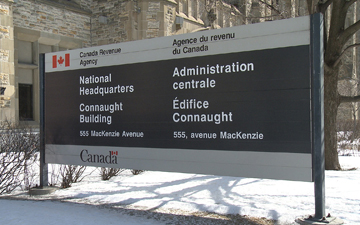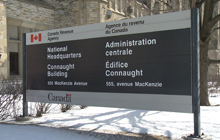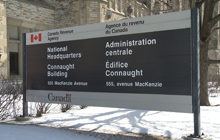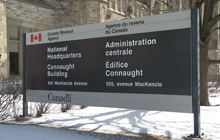Surprise! Canada Revenue Agency set to release tax gap data this month

Trudeau surprise announcement met with cautious optimism, concern by Canadian tax experts
TORONTO, February 13, 2018 – In a surprise announcement that may have ramifications for the Canadian accounting profession, Prime Minister Justin Trudeau has told the House of Commons that the Canada Revenue Agency will release data required by the parliamentary budget office (PBO) to calculate the so-called tax gap. "An agreement has been concluded with the parliamentary budget officer and will provide this data in a way that will ensure the protection of personal information of Canadians by the end of the month," said the Prime Minister.
“I’m delighted to see the government’s plan to release the tax gap data,” says Professor Kim Brooks of Schulich School of Law at Dalhousie University. Brooks is a noted tax treaty expert and member of both the Canadian Tax Foundation Board of Governors and the International Fiscal Association. In 2016, she was appointed to a Canadian government panel on offshore tax evasion, the Offshore Compliance Advisory Committee.
“There are measurement challenges in estimating how much tax remains outside the net, so all data has to be read with some skepticism,” Brooks said by email to Canadian Accountant. “Nevertheless, it’s useful to have publicly available estimates using a consistent methodology that can be applied over time to track trends and the effectiveness of government tax administration responses to the underground economy.”
Parliamentary Budget Officer Jean-Denis Fréchette had indicated that, if the CRA did not turn over the data by February 28, he would explore other options, including legal ones. Despite the agreement, he has reserved the right to take the CRA to court, should the CRA’s tax data prove inadequate to calculate the tax gap. Fréchette has said that it could take six to 10 months to calculate the tax gap.
The Canada Revenue Agency had been accused of “stonewalling” the PBO over successive requests over a five-year period for the data required to calculate the tax gap. As reported by the Toronto Star, three different parliamentary budget officers over a period of six years requested federal data from the CRA to calculate the difference between taxes due and those actually collected.
“It was a surprise,” Fréchette told the Toronto Star. “I’m excited about the announcement. It’s been five years. It’s been a long fight.”
"Through successive governments, for the past several years, CRA has touted their fight against the underground economy," says tax accountant and lawyer David Rotflesich of Rotfleisch & Samulovitch in Toronto. "The statistics on tax evasion prosecutions have not borne this out, with some 35 successful prosecutions for the latest statistics reported.
"Related to this, I have suspected that the long-standing CRA refusal to release the so-called tax gap information to the parliamentary budget office was to allow CRA to laud itself without providing metrics to measure their performance."
Rotfleisch is frequently called upon by Canadian media to explain complex tax policy to a general audience. He has been critical of Canada Revenue Agency changes to the Voluntary Disclosures Program, which gives Canadians a "second chance" to declare income without penalty or prosecution. "The tax gap will measure the difference between taxes collected versus what should have been collected," explains Rotfleisch.
"In other words, it provides a measure of the underground economy, and how successful CRA is in fighting it. My suspicion is that it will provide disturbing reading to honest taxpayers. We should know by the end of the year."
More than a dozen developed countries, including the U.S. and U.K., measure and publicly report their country’s tax gap. The U.S. has done so for more than 50 years. Estimates of the cost of tax avoidance and evasion to Canada’s coffers have ranged from $8.9 billion to $47.8 billion annually.
Liberal Senator Percy Downe, a frequent critic of the government’s focus on small business taxation in 2017, says that, if the data is properly released by the CRA, it will be a “breakthrough” for Canadians in realizing how much tax income is lost for the funding of government initiatives.
Colin Ellis is managing editor of Canadian Accountant.











(0) Comments